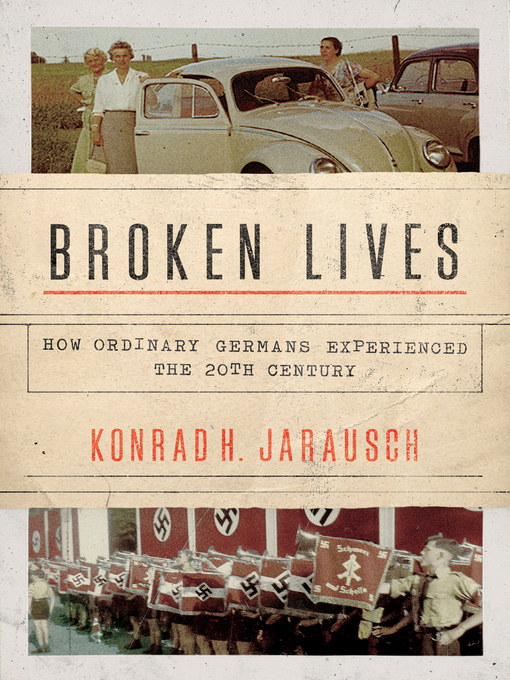The gripping stories of ordinary Germans who lived through World War II, the Holocaust, and Cold War partition—but also recovery, reunification, and rehabilitation
Broken Lives is a gripping account of the twentieth century as seen through the eyes of ordinary Germans who came of age under Hitler and whose lives were scarred and sometimes destroyed by what they saw and did.
Drawing on six dozen memoirs by the generation of Germans born in the 1920s, Konrad Jarausch chronicles the unforgettable stories of people who not only lived through the Third Reich, World War II, the Holocaust, and Cold War partition, but also participated in Germany's astonishing postwar recovery, reunification, and rehabilitation. Written decades after the events, these testimonies, many of them unpublished, look back on the mistakes of young people caught up in the Nazi movement. In many, early enthusiasm turns to deep disillusionment as the price of complicity with a brutal dictatorship—fighting at the front, aerial bombardment at home, murder in the concentration camps—becomes clear.
Bringing together the voices of men and women, perpetrators and victims, Broken Lives reveals the intimate human details of historical events and offers new insights about persistent questions. Why did so many Germans support Hitler through years of wartime sacrifice and Nazi inhumanity? How did they finally distance themselves from this racist dictatorship and come to embrace human rights? Jarausch argues that this generation's focus on its own suffering, often maligned by historians, ultimately led to a more critical understanding of national identity—one that helped transform Germany from a military aggressor into a pillar of European democracy.
The result is a powerful account of the everyday experiences and troubling memories of average Germans who journeyed into, through, and out of the abyss of a dark century.
- Newest eBooks
- Available Now eBook Classics
- Available Now
- Diverse Romance
- Celebrate Hispanic Heritage
- Dark Academia
- Native American Heritage
- Romantasy
- Diverse Cozy Mysteries
- Greek Myth Retellings
- National Poetry Month
- The Immigrant & Refugee Experience
- Diverse Memoirs
- See all ebooks collections
- New audiobook additions
- Available Now Audiobook Classics
- Available now
- New kids additions
- New teen additions
- Diverse Romance
- Celebrate Hispanic Heritage
- Dark Academia
- Native American Heritage
- Romantasy
- Diverse Cozy Mysteries
- Greek Myth Retellings
- National Poetry Month
- See all audiobooks collections

